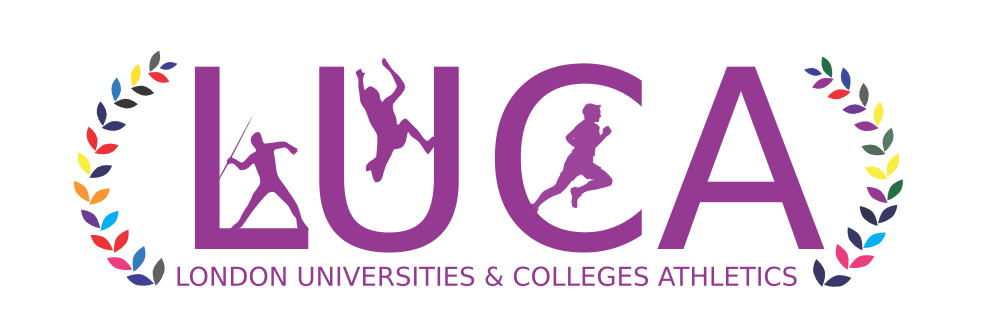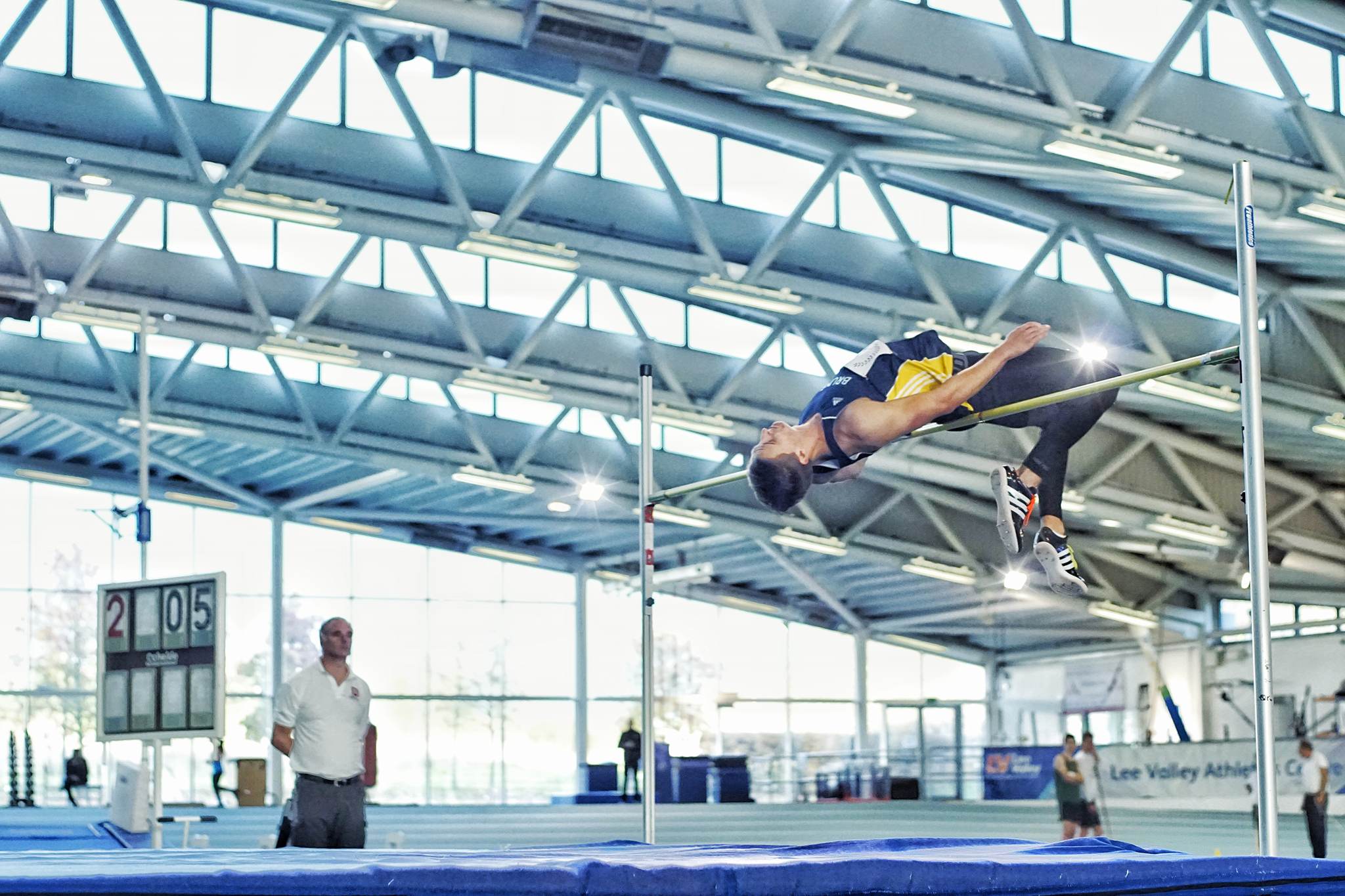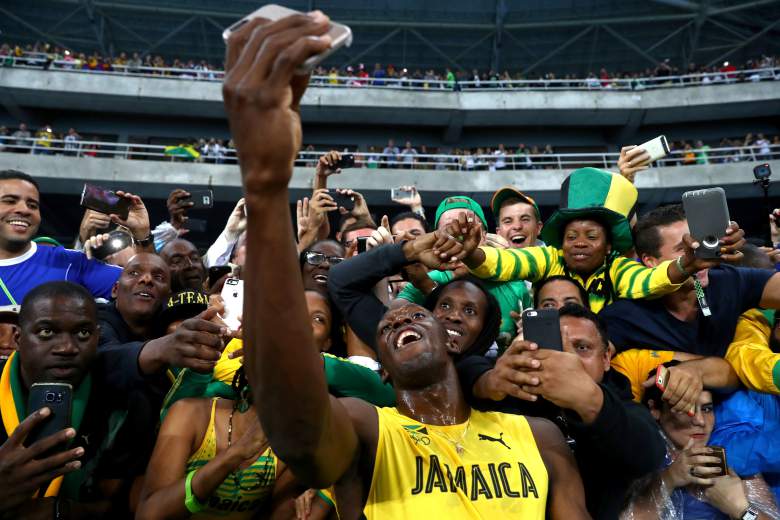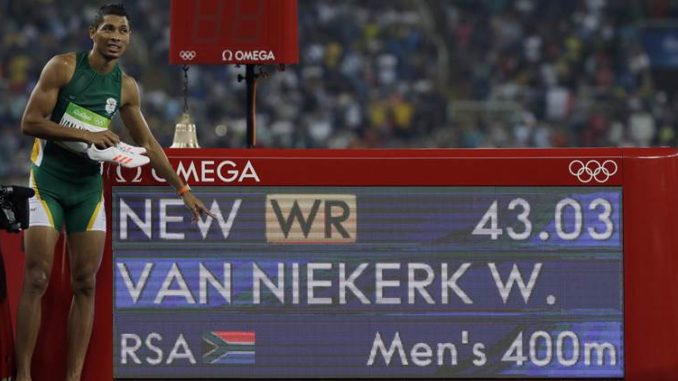
Take a look at athletics on the world stage ever since it has been gripped by professionalism, and you will notice a number of trends. Arguably the two most persistent are the U.S and Jamaica vying for top-dog status in the sprinting discipline, and Kenyans and Ethiopians looking to get one over each-other in the 5k, 10k and marathon. Despite this last example, attributed to the two east-African countries being exceptionally mountainous, one might be surprised at the relative lack of African success in other disciplines. Though it may seem counterproductive to speak of ‘Africa’ so generally, if genetics (not to mention sheer numbers) are any indication, the potential of the continent is huge. Unfortunately, success is often very dependent on funding, which, in the cut-throat environment of professional athletics, can prove the difference between being a world-beater and an also-ran. Thankfully, after this August’s world championships, it would appear that Africa’s potential is beginning to be fulfilled.
In Britain, the most blatant example could be of Mo being pipped to 5000m Gold by Muktar Edris of Ethiopia. However, Edris’ triumph merely reminded viewers that Mo highjacked the mantle of long-distance track king five years ago, and signalled that Kenya and Ethiopia will all too likely resume their dominance in the 5 and 10km disciplines now Mo has hung up his spikes.
So if not in distance running, then where is the proof of this rise in talent? Well, just about everywhere else. Most prominent of all, Wayde Van Niekerk, though already well on his way to becoming a household name prior to the championships, leads the charge. His feat of breaking Michael Johnson’s 17-year-old 400m world record at last year’s Olympics was arguably one of track’s greatest moments. Particularly indicative of his potential was his calm demeanour immediately after the race. Some might argue that it was sheer disbelief, but to others, it was a sign that he knew he was capable of it; a sign of even bigger things to come. The fact that he chose to compete in both the 400m and 200m disciplines in August’s championships – winning the first but settling for silver in the latter – and broke down on-air in response to his unfair vilification for not giving it his all in pursuit of a new, sub-43 seconds world record, shows just how grounded he remains. Van Niekerk’s illustrious career is in full swing, but he knows he can bide his time in setting an even higher standard – the aforementioned sub-43 record, imminent in many people’s eyes – that may even outlast Johnson’s own 17-year record. In his own words during his emotional interview, ‘this is just the beginning’.
In the same category of established talent is a certain Julius Yego, a Kenyan javelin thrower who burst onto the stage two years ago by winning world championship gold, following it up with Olympic silver a year later, having taught himself to throw with Youtube videos. Unfortunately, Mr Yego finished last in August’s championships, registering a disappointing throw of 76.29m – almost 16.5m short of his – and Africa’s – best. However, as the man with the 5th furthest throw in the discipline’s history, we surely haven’t seen the last of the athlete aptly known as ‘Mr Youtube’.
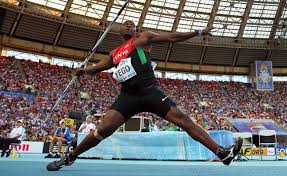
When considering African athletic talent, we cannot overlook Caster Semenya, the South African 800m queen. Yet on top of Semenya’s unsurprising victory in August, Burundi’s Francine Niyonsaba proved a surprise package in claiming 800m women’s silver after producing only the 16th fastest time of the semi-finals – albeit winning her heat in the process. However, Ms Semenya and Ms Niyonsaba have been around and challenging for 800m titles (or in Ms Semenya’s case, dominating the event) for a few years now and so might not fall under the ‘emerging’ title.
How about the truly emerging African talent then? Queen Elizabeth Olympic Park was teeming with athletes making their names on the big stage: from two other South Africans – Luvo Manyonga and Rushwahl Samaai – winning long jump gold and bronze respectively, to Côte d’Ivoire’s Marie-Josée Ta Lou typifying the underdog performance in winning 100m and 200m silver, against all expectations. In fact, 100m gold was well within Ms Ta Lou’s grasp, as she finished one hundredth of a second behind the US’s Tori Bowie, whose dip for the line was far better executed than her rival’s and won her the race.
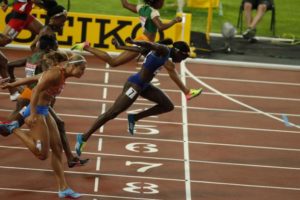
Finally, and possibly most notoriously following the controversy of being refused access to the stadium to run the 400m final after a norovirus scare, is Botswana’s Isaac Makwala. As a man with the 8th fastest 400m time in history, who recently became the first to run a sub-20 second 200m followed by a sub-44 second 400m the same day (2 hours and 20 minutes later, in fact), Makwala’s plight in August was a difficult pill to swallow. He understandably felt hard done by and made no secret of it. Further fuel was thrown on the fire when he asserted that the IAAF had deliberately and unfairly quarantined him to pave the path for Van Niekerk’s 400m victory. After the quarantine was lifted, he went on to qualify for the 200m final by running a lone time trial, demonstrating his physical well-being and the IAAF’s mistake by performing push-ups upon crossing the finish line. However, after a trying 48 hours, he then ran 20.44 to finish 6th in the final – slow, by the standards of a sprinter of his calibre. Much to the dismay of spectators, this meant that we were not treated to a classic showdown between him and Van Niekerk, as hoped, in either the 400m or 200m disciplines.
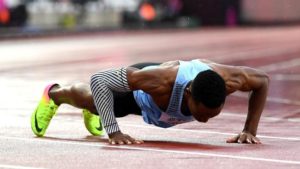
In a championship which served up a number of surprise results, it is difficult to gauge whether some of them were mere one-offs; Turkey’s Ramil Guliyev’s 200m victory, Norway’s Karsten Warholm’s 400m hurdles win and Usain Bolt’s downfall spring to mind. However, consider all the aforementioned African athletes’ results and none stand out as being unreproducible. There is certainly cause for optimism for the future of African athletics, and not just in the distance disciplines now. At the very least, we are witnessing the fulfillment of the promise presented by one country in particular; you heard it here first, South Africa is an athletics powerhouse in the making.
